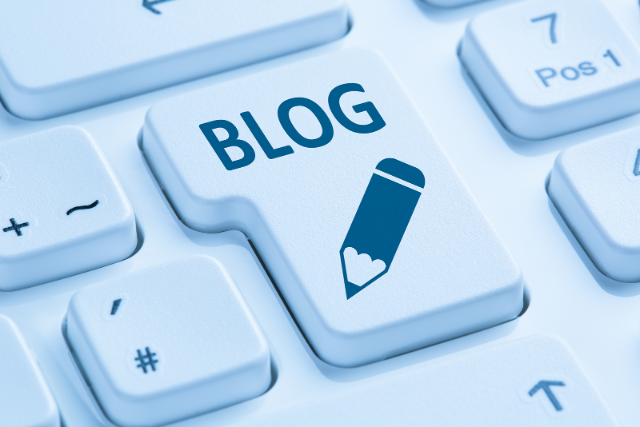
As the seasons shift and temperatures gradually rise, homeowners in Jefferson City, TN, start to prepare for the upcoming summer months. The prospect of longer, warmer days often brings concerns about rising energy bills and keeping homes comfortable without overspending. One powerful way to prepare is by scheduling a spring energy audit for your home’s heating, ventilation, and air conditioning (HVAC) system.
Energy audits might sound technical or intimidating, but they’re actually a straightforward and highly beneficial service that can help you save money, improve home comfort, and reduce your environmental impact. In this blog, we’ll walk you through what a spring energy audit is, why it’s essential for Jefferson City residents, how the process works, and how it can protect you from costly energy bills this summer.
Understanding Jefferson City’s Climate and Energy Needs
Before we dive into energy audits, it helps to understand the local climate in Jefferson City. This region experiences a humid subtropical climate, which means mild winters and hot, humid summers. Average summer temperatures often rise above 85°F, with high humidity making the air feel even warmer.
Because of this climate, air conditioning becomes essential during summer months for maintaining indoor comfort. Unfortunately, cooling a home in a hot, humid environment can significantly increase energy consumption. According to the U.S. Energy Information Administration, cooling accounts for nearly 13% of the average household’s annual energy use, and that percentage spikes during the peak summer months.
If your home isn’t operating efficiently, your air conditioner has to work harder, leading to higher energy bills and more wear and tear on your HVAC system. That’s why a spring energy audit is such a smart investment—it ensures your home is ready to handle the summer heat without breaking the bank.
What Is a Spring Energy Audit?
A spring energy audit is a comprehensive evaluation of your home’s energy use, with a particular focus on your HVAC system’s efficiency and overall home insulation. It’s called a “spring” audit because conducting it during the early months of the year prepares your home for the energy-intensive summer season.
During an energy audit, a trained professional examines various factors contributing to your home’s energy consumption, including:
-
HVAC system performance
-
Air leaks and drafts around windows, doors, and vents
-
Insulation quality in walls, attic, and floors
-
Thermostat settings and calibration
-
Ductwork condition and air flow
-
Energy usage patterns in appliances and lighting
The goal is to identify areas where your home is losing energy or your HVAC system isn’t operating efficiently. From there, your technician can recommend targeted improvements to reduce energy waste, lower your utility bills, and increase comfort.
Why Spring Is the Perfect Time for an Energy Audit
Scheduling an energy audit in spring makes the most sense for several reasons:
1. Prepare for Summer Cooling Needs
By spring, winter heating demands are behind you, and the hot summer months are approaching fast. An energy audit at this time allows you to address any issues with your air conditioning system or home insulation before temperatures rise. This proactive approach helps avoid surprises like skyrocketing energy bills or unexpected HVAC breakdowns during peak heat.
2. Better Access to HVAC Professionals
Spring tends to be less busy for HVAC contractors compared to summer, when many homeowners need urgent air conditioning repairs or installations. Booking your energy audit now increases the chances of getting prompt service and detailed attention.
3. Time to Plan and Budget Improvements
After your energy audit, you’ll receive recommendations on necessary repairs or upgrades. Doing this in spring gives you time to plan, budget, and schedule these improvements before you start relying heavily on cooling systems in summer.
Benefits of a Spring Energy Audit in Jefferson City
Investing in a spring energy audit brings multiple advantages that extend beyond just cutting your energy bills. Here are some of the key benefits:
Lower Energy Bills
The most immediate and noticeable benefit of an energy audit is reduced energy costs. According to the U.S. Department of Energy, sealing air leaks and improving insulation can save homeowners up to 20% on heating and cooling bills annually. With Jefferson City’s hot summers, even small efficiency improvements can translate into significant savings.
Enhanced Comfort
Uneven temperatures, drafts, or poor air circulation can make your home uncomfortable during hot days. An energy audit helps identify the causes of these problems so they can be fixed, resulting in more consistent indoor temperatures and better air quality.
Extended HVAC Lifespan
When your HVAC system runs efficiently, it experiences less strain and wear. Energy audits help pinpoint problems like duct leaks or thermostat malfunctions, which, when corrected, reduce the chances of costly breakdowns and extend the life of your equipment.
Environmental Benefits
Reducing energy consumption means lowering your household’s carbon footprint. Jefferson City residents who invest in energy audits and subsequent improvements contribute to local and global efforts to reduce greenhouse gas emissions and protect natural resources.
Increased Home Value
Homes with energy-efficient features and well-maintained HVAC systems are often more attractive to buyers. Completing an energy audit and making recommended upgrades can enhance your property’s market value and appeal.
What to Expect During a Spring Energy Audit
If you decide to schedule a spring energy audit in Jefferson City, here’s what typically happens during the process:
Initial Consultation
Your technician will start by discussing your current energy concerns and goals. They may ask about your utility bills, thermostat settings, and any comfort issues you’ve noticed.
Visual Inspection
The auditor will inspect your home’s heating and cooling equipment, including the furnace, air conditioner, thermostat, and ductwork. They will also examine windows, doors, insulation levels, and potential air leaks.
Diagnostic Testing
Using specialized tools, the auditor may perform a blower door test, which measures the airtightness of your home by temporarily reducing indoor air pressure. They might also use infrared cameras to detect insulation gaps or thermal leaks invisible to the naked eye.
Data Analysis and Report
Based on their findings, the technician will prepare a detailed report outlining problem areas, potential energy savings, and recommendations for improvements.
Recommendations and Next Steps
Finally, your technician will discuss cost-effective solutions, which may include sealing leaks, adding insulation, servicing or upgrading your HVAC system, installing a programmable thermostat, or other energy-saving measures.
Common Recommendations After an Energy Audit
While every home is different, some recommendations tend to come up frequently for Jefferson City homes during energy audits:
Seal Air Leaks
Common leak points include window frames, doorways, attic hatches, and around ductwork. Sealing these gaps can drastically reduce unwanted heat gain in summer.
Upgrade Insulation
Improving insulation in attics and walls helps keep your home cooler in summer and warmer in winter, reducing the workload on your HVAC system.
Maintain or Upgrade HVAC Equipment
Regular maintenance, like cleaning coils and changing filters, improves efficiency. In some cases, replacing an old or inefficient air conditioner with a newer, energy-efficient model can lead to substantial savings.
Install Programmable Thermostats
These devices allow you to set temperature schedules, reducing cooling when no one is home and lowering energy consumption.
Optimize Ductwork
Leaky or poorly insulated ducts can waste up to 30% of the air your HVAC system produces. Repairing or insulating ductwork improves air flow and efficiency.
Energy Audit and Rebates: Maximizing Your Savings
Many local and federal programs offer incentives or rebates for energy efficiency improvements. After an energy audit, you may qualify for rebates on insulation upgrades, HVAC equipment replacement, or energy-efficient thermostats.
Taking advantage of these programs can offset the upfront costs of improvements and increase your overall savings. Your energy audit professional can help guide you through the available options specific to Jefferson City, TN.
How Often Should You Schedule an Energy Audit?
While one thorough energy audit can provide a solid foundation, experts recommend scheduling an energy audit every few years or after significant home upgrades, such as remodeling or installing new HVAC equipment. For Jefferson City residents, having an audit before the summer season every 3-5 years is a good rule of thumb.
Additionally, if you notice sudden spikes in energy bills, inconsistent indoor temperatures, or your HVAC system struggling to maintain comfort, it may be time for another audit regardless of the last one.
Myths About Energy Audits Debunked
Some homeowners hesitate to schedule energy audits due to misconceptions. Let’s clear up a few common myths:
Myth: Energy Audits Are Expensive and Not Worth It
While an audit is an investment, the potential savings on energy bills often pay for the audit within a year or two. Plus, many companies offer affordable packages and promotions, especially during spring.
Myth: Energy Audits Only Focus on HVAC
Although HVAC systems are a significant focus, energy audits look at your entire home’s energy use, including insulation, lighting, appliances, and air leaks.
Myth: Energy Audits Are Complicated and Disruptive
Professional auditors work efficiently and respect your home. Most audits can be completed within a few hours with minimal disruption.
Preparing for Your Spring Energy Audit
To get the most from your energy audit, here are some tips to prepare:
-
Gather utility bills from the past year to provide the auditor with detailed energy usage history.
-
Make a list of comfort concerns, such as hot or cold spots, drafts, or unusual noises from HVAC equipment.
-
Clear access to your HVAC system, attic, and basement so the technician can inspect these areas thoroughly.
-
Note any recent home upgrades or repairs that may affect energy use.
Being prepared helps ensure a thorough and efficient audit process.
For Home Energy Audit Services in Jefferson City, TN, Contact Budget Heating & Air Conditioning Today
As you plan to get your home ready for the summer heat, a spring energy audit is one of the smartest steps you can take. It helps uncover hidden energy inefficiencies, reduce your cooling costs, and improve your home’s comfort during Jefferson City’s hot, humid months.
At Budget Heating & Air Conditioning, we specialize in professional, comprehensive energy audits tailored to the unique needs of homes in Jefferson City, TN. Our experienced technicians use advanced diagnostic tools to identify energy waste and provide you with practical, cost-effective solutions. We’re committed to helping you save money, enhance comfort, and protect your home’s HVAC investment.
Don’t wait until your energy bills spike or your air conditioner struggles to keep up. Contact Budget Heating & Air Conditioning this spring and take control of your home’s energy efficiency before summer arrives. Our friendly experts are here to guide you every step of the way, ensuring your home stays cool and your energy costs stay low.






